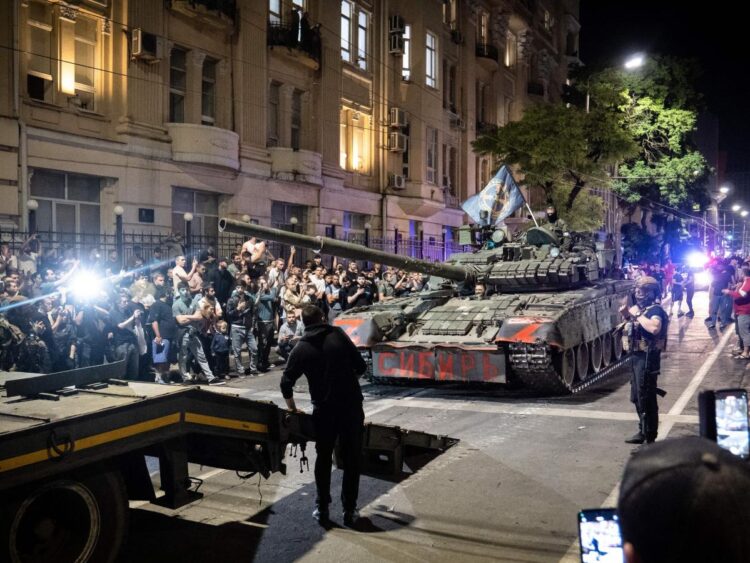
-
The Wagner Group’s rebellion has shaken Russia’s public image on Chinese social media.
-
As Wagner marched on Moscow, Weibo users began worrying the instability could spill into China.
-
It’s a stark contrast to how China typically frames Russia as a bulwark against a hostile US.
As Wagner mercenaries marched on the Kremlin over the weekend, Chinese people were given full view of a sight rarely allowed on social media — a modern Russia thrown into turmoil by infighting and political strife.
On Weibo, China’s version of Twitter, the hashtag “Putin accuses Wagner head of treason” received 2.37 billion views in just 24 hours.
Posts discussing Wagner Group chief Yevgeny Prigozhin’s mutiny, during which he called upon his 25,000 soldiers to march north to Moscow, surged to the top of Weibo’s charts on Sunday, according to data seen by Insider.
The rebellion finally put Moscow’s months of internal strife on display for Weibo’s users, which stood in stark contrast to the usual Chinese state narrative of a mighty, stable Russia standing up to the West.
State media reports on Prigozhin’s insurrection were careful to emphasize the Kremlin’s perspective and a perception that things were still under control. Chinese news articles discussed tightened security in Russia, the criminality of armed rebellion, and included claims that life in Russia was carrying on as per normal.
But as Wagner advanced through Russia, people on Weibo began to fret about how China may be affected by a hypothetical Russian civil war, or if Vladimir Putin’s grip on power is diminished.
“When the lips are gone, the teeth will feel the cold,” one user wrote, expressing worry that the instability could spill into China.
“If Russia were to be disintegrated by Western powers from the outside, or if it suffers from internal chaos, then it would really not be a good thing for China,” they added.
“If they truly move toward Moscow, there’s a chance that war will be right next to our border,” another user wrote. “It would be difficult for China to remain unaffected in such a situation.”
Hu Xijin, the vocal pundit and former chief editor of pro-Beijing outlet The Global Times, made several Weibo posts warning of the “tremendous impact” of Prigozhin’s revolt on Putin’s government and Russia’s stability.
“Now it seems that the situation is moving in the direction that the West and Ukraine most want to see, though the final outcome is still unknown,” he wrote on Saturday.
Many of these concerns stem from the idea that should Russia be brought to its knees, the US may then turn its full attention to undermining China — a narrative often allowed to thrive on the usually tightly censored Weibo.
“When Russia collapses, the wolves headed by ‘the beautiful country’ will have greater energy to target us,” wrote a blogger with 1 million followers. “Beautiful country” is a term regularly used on Chinese social media to refer to the US sarcastically.
“If the Big Goose can’t hold on anymore, who will suffer the consequences? Who will be the next one to face being besieged on all sides? Who will be blocked in the economy, military, and technology by the group headed by the beautiful country?” wrote another user. “Big Goose” is a nickname Chinese internet users often use to refer to Russia.
“If Russia really falls, then the beautiful country can spare more energy to target us,” a popular military blogger wrote. “So from this perspective, Wagner’s military rebellion is not a good thing for us.”
Prigozhin said on Sunday that he would turn back, claiming that he wanted to avoid shedding Russian blood. His announcement came as Belarusian President Aleksandr Lukashenko, a close ally of Putin, said he’d been negotiating with the Wagner boss on Saturday.
Prigozhin will be exiled to Belarus after striking a deal to avoid prosecution in Russia, according to the Kremlin.
Read the original article on Insider
[ad_2]
Source link







